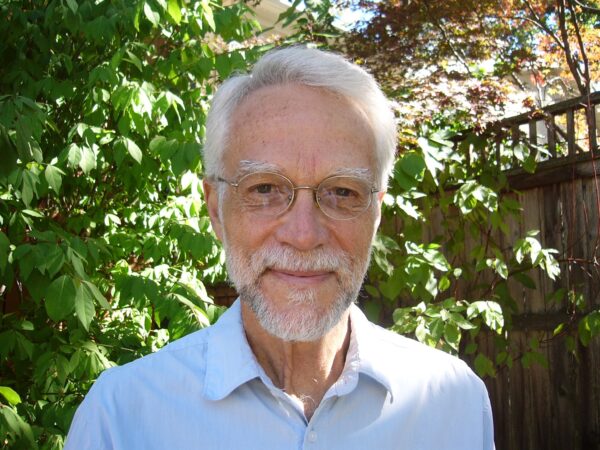Steven M. Stowe, a historian of the US South, passed away on October 3, 2023, from complications of lymphoma. He was 77.

Photo courtesy Naoko Wake
Born in Long Beach, California, to Mac and Joanne Stowe, Steve started his career as a writer early. As a high schooler, then as a college student at California State University, Long Beach, he became interested in journalism and worked at the Long Beach Independent Press-Telegram. When he decided to go to graduate school a few years later, he was drawn to history, as he felt that writing history gives imagination more scope and depth. He studied US Southern history at the State University of New York, Stony Brook, in the 1970s, when anti–Vietnam War protest raged and new social and cultural history was on the rise. Steve became an avid participant of both.
After earning his PhD, he taught briefly at New York and Penn State Universities, before he settled at Indiana University Bloomington in 1987. He was an excellent teacher and taught popular courses on US antebellum history, the history of the South, Civil War history, and the history of medicine. He mentored a great cohort of graduate students, who remember Steve as smart, kind, generous, and curious. He always wanted to know what they thought. Steve was famous for his densely typed, multipage comments on their work, which always encouraged them to bring out their own voices.
Steve was central to shaping the direction of the field of Southern history. His first book, Intimacy and Power in the Old South: Ritual in the Lives of the Planters (Johns Hopkins Univ. Press, 1987), confirmed his standing as a leading scholar in US Southern history. He helped establish the Southern Intellectual History Circle (SIHC) in 1989 with Michael O’Brien, Drew Faust, Eugene Genovese, and Bertram Wyatt-Brown, among others. With this group, he broadened our understanding of the discipline, encouraging literary scholars to attend SIHC’s meetings, and mentoring early career scholars well before established mentorship programs existed. Steve showed what it meant to be a historian to generations of scholars. He was generous with his time and always eager to hear what people were working on. As one colleague said, “Steve was the best of us.”
At Indiana, Steve served as associate editor of the Journal of American History three times, with editors David Thelen, Dave Nord, and Joanne Meyerowitz. During his tenures, he read a manuscript almost every day and became known for joining his perceptive criticism with a quick, disarming sense of humor. And yet, his utmost passion was reserved for writing. In one of his letters in 2003, he described his thoughts on writing history this way: “When I write, when I create with words, which I dearly love to do, history’s balance of ‘heat’ and ‘light’ . . . is a very good one for me . . . [and] for the mysteries and absurdities and small, forgotten beauties of life. . . . When it works right, writing is almost a physical pleasure for me.” Colleagues admired his books—after his first came Doctoring the South: Southern Physicians and Everyday Medicine in the Mid-Nineteenth Century (Univ. of North Carolina Press, 2004) and Keep the Days: Reading the Civil War Diaries of Southern Women (Univ. of North Carolina Press, 2018)—for keen analysis, beauty of writing, and empathy. Throughout his writing career, Steve’s love for letters and diaries shone. Before he passed away, he was writing a book on the California missions.
After retiring from Indiana in 2010, Steve went to Michigan State University as a visiting scholar, where he was welcomed into a new circle of historians. He avidly read their work, curious and generous at once as he always was. His friends responded with warm regards and friendship.
Steve is survived by his wife, Naoko Wake; his children Benjamin Stowe and Sarah Stowe; their partners Heather and Doug; his grandchildren Samuel, Hazel, and Fern; and his three siblings. Steve is buried in Lansing, Michigan, and Hiroshima, Japan, two homes where he is dearly loved and remembered.
Sarah E. Gardner
Mercer University
Naoko Wake
Michigan State University
This work is licensed under a Creative Commons Attribution-NonCommercial-NoDerivatives 4.0 International License. Attribution must provide author name, article title, Perspectives on History, date of publication, and a link to this page. This license applies only to the article, not to text or images used here by permission.